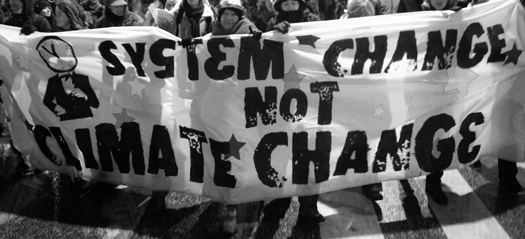
Populist authoritarian figures are gaining momentum around the world. According to many political science experts, democracy is in peril, and the climate could become collateral damage. Scholars debate whether democratic institutions can enact meaningful, timely policies to stave off climate disasters.
The pace at which current climate commitments are being met (or not) makes the case for some that heavy-handed, authoritarian tactics are preferable to the glacial pace and capricious nature of democracies.
The democratic system can be cacophonous; full of debate, compromise, and often stalemates. Many citizens around the world, fed up with this style of governance, are ready to put their hopes in strongmen leaders who do not take ‘no’ for an answer. Young people are growing more radical in their calls for action on climate change, seeing that their future hangs in the balance.
These issues beg the question. Are authoritarian leaders better at transitioning their countries to low carbon economies and meeting their Paris Agreement targets? Chinese President Xi Jinping touts democracy as inefficient and dysfunctional and claims that China’s top-down model is better for making difficult decisions that require long-term commitments.
China is the largest producer of solar panels in the world, and the National Energy Administration reports that as of 2021, 43.5 per cent of China’s power capacity comes from renewable energy sources. Some of China’s ambitious energy projects have displaced thousands of people, and protests against such moves are swiftly quelled.
Alexander Butler writes in The Diplomat, “Overzealous enthusiasm for authoritarianism’s ostensible capacity to mitigate anthropogenic climate change also overlooks the importance of bottom-up and grassroots campaigns in stimulating public discussion and achieving climate justice and protection.” In places where public discourse on controversial topics is stifled, leadership resides in an echo chamber, where innovation has never been found.
World leaders come together year after year to compromise on how to tackle climate change and to make commitments that do not live up to scientists’ recommendations. It is hit or miss whether those commitments come to fruition once leaders return home. Today’s political environment is not conducive to taking on a dire task that requires a cohesive global effort in a timely manner.
Climate change’s urgency is no match for politicians that are worried about re-election every few years. Candidates often campaign on platforms that put climate front and centre, but rarely deliver the full package of their promises. The cost of compromise is watered down commitments.
Does this mean that eco-authoritarian tactics are preferable? If substantial climate mitigation were achieved through non-compromising, top-down methods, what else would be lost in the process? Authoritative power is rarely confined to one policy area.
Regarding China, the Economist considers, “At moments, it is hard to tell whether the driving force behind a green policy is a desire for a cleaner environment or an obsession with social controls.”
Ross Mittiga argues in the Cambridge University Press, that democracies should work to legitimate themselves now by taking steps to tackle climate change in a meaningful way so that authoritarian measures do not become necessary to mitigate the crisis in the future.
Democracies foster environments where grassroots efforts, which create longer-lasting change that includes public input, thrive. Instead of arguing for the necessity of eco-authoritarianism given the urgency of the climate crisis, democracies can reform to better tackle the issue.
Ecosia, a search engine that claims to use ad revenue to plant trees, released a video suggesting ways to improve parliamentary democracies to better equip them to deal with the climate crisis. These include:
Casting a second alternative vote in case a voter’s first-party choice does not meet the vote threshold percentage to gain a seat, so that redistribution does not automatically benefit a larger party that the voter does not support
Lowering the voting age.
Creating citizen assemblies that collaborate with experts to craft recommendations and send them to parliament so that less coalition-building and compromise is done behind closed doors
Democracy has its faults, but before tossing a system that millions around the world have fought to enact after generations of oppressive authoritarian rule, leaders may explore equitable reform to avert the climate crisis with citizen support.
Democratic reform is as time-sensitive as the climate crisis itself, which creates instability and thus offers opportunities for more oppressive governments to take hold in vulnerable regions.
Photo: “System Change Not Climate Change” banner displayed during a protest at the UN Climate Change Conference – COP15, on December 17, 2009, Copenhagen, Denmark.
(Credit: Kris Krüg/Flickr Commons)
Sarah Sakeena Marshall,
Korea Economic Institute Intern, American University’s School of International Service,
The Muslim News Environmental Columnist